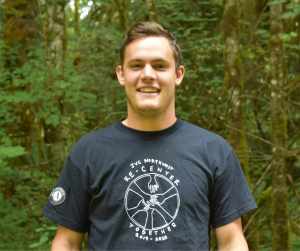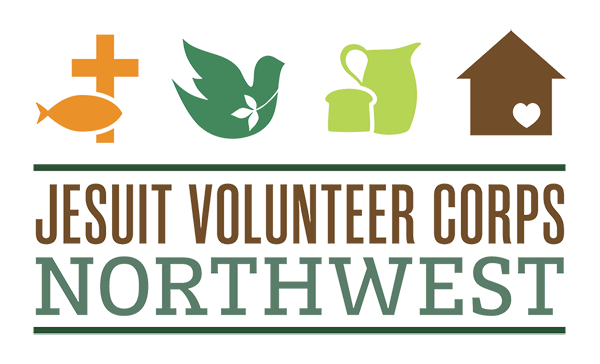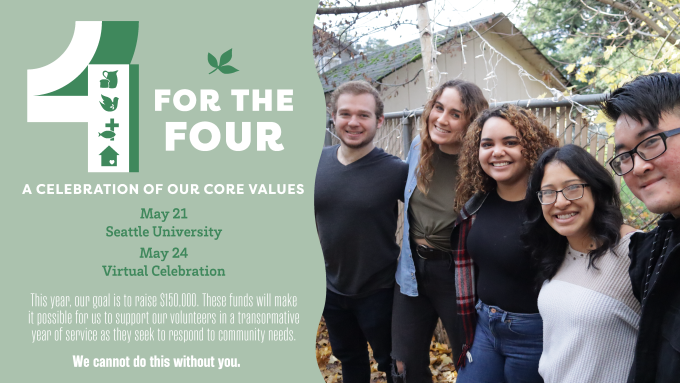I am currently serving as a JV AmeriCorps member at Volunteers of America’s Men’s Residential Center (MRC) – the MRC is an all-male 52-bed residential drug and alcohol treatment facility. The program consists of six months of intensive residential care. This means that the guys are actively participating in classes like Mindfulness, Anger Expression, and Relapse Prevention, as well as Mandatory Recreation. Yes, this is exactly what it sounds like: forced fun. I am serving as recreation coordinator, so I am responsible for planning and executing the forced fun throughout the week. A big part of MRC philosophy is to get these men back into the community in prosocial, positive ways. Emphasizing recreation gives the clients opportunities to see what clean and sober fun looks like and what part it can play in their recovery. Whether it be bowling or kayaking, the nickel arcade or the batting cages, or my personal favorite trampoline dodgeball, it is always a treat to get the guys out of the house and enjoying themselves in a healthy way. The recreation activities are also great opportunities for clients to let their guard down, be themselves, and welcome joy.
While the clients that come into the MRC are generally diverse, the one thing they all have in common is that they have been referred by Multnomah County Parole and Probation. Because of this, clients have varying degrees of motivation in coming to treatment. Some may enter with the intention of fully engaging in treatment and with the goal of recovering and making positive change. Others may see treatment as an opportunity to avoid jailtime, and do not enter with an attitude geared toward serious change. However, the state of mind or attitude that a client enters treatment does not matter to the MRC. It is not a good indicator of how a client will respond to treatment.
Even in my short experience, I can attest that it is impossible to judge or determine who will respond positively to treatment and who will not. This means that men that you may judge to have a positive attitude and are ready and willing to change, leave treatment just after one week. It also means that some men that you may judge as not being serious at the start, surprise you and end up graduating. There is no obvious indicator of who is ready to change and who will do well in treatment. Furthermore, responding positively to treatment and making it to graduation is one thing. Leaving treatment and remaining clean and sober is another. Clients may graduate, and things might look like they are set up for success, yet within a month they have relapsed and are back on the streets. Recovery is not something gained in a six month intensive treatment facility. It is something that needs to be maintained every day, through support, mentorship, AA and NA meetings and living skills. Addiction is not a curable disease. It is a disease that needs life-long treatment. On the daily, it takes hard work, courage, an incredible amount of self-awareness and vulnerability, and a willingness to ask for help.
I wanted to share this insight into addiction and recovery because I think it can serve as a useful reminder for myself at this time of year and at this point in my life. If I look back on my decision to commit to a service year, I can see that part of me resembled the client who committed to treatment just to avoid jail time. That part of me was committing to this service year just to avoid moving back in with my parents. At the same time, part of me resembled the client who committed to treatment because he was enthusiastic about changing his way of living. This part of me knew that in doing a JV AmeriCorps year, I would be surrounded by a bunch of supporting and loving folks and exposed to meaningful experiences that would challenge me to make positive changes in my life.
We all enter the winter season with different motivations, attitudes, and intentions. Just as we as JV AmeriCorps members entered our service year with different motivations, attitudes and intentions. Regardless of how you enter this season, or perhaps entered a service year, recovery can serve as an example of how change is made. It is not made during a JV AmeriCorps year of service. Likewise, it is not made during one holiday season or through one New Year’s Resolution. Recovery has taught me that change and personal growth is not something gained, but something practiced. Like Recovery, all personal growth takes hard work, courage, an incredible amount of self-awareness vulnerability, and a willingness to ask for help.


